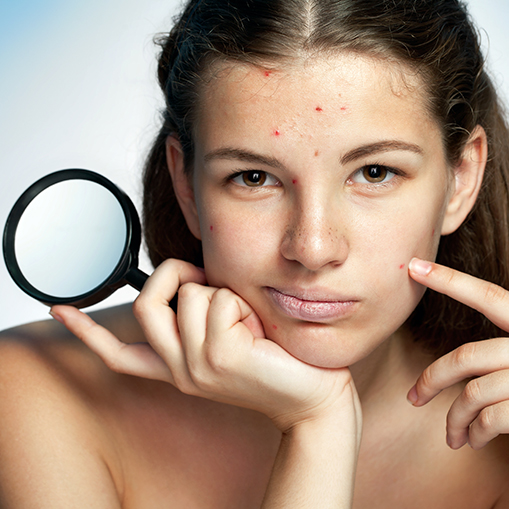Polycystic Ovarian Syndrome (PCOS)
PCOS is one of the most common hormonal disorders in women between the ages of 13 to 45 years in which a woman’s hormones become out of balance. It can affect a girl’s/woman’s:
- Menstrual cycle
- Ability to have children
- Hormones
- Heart
- Blood vessels
- Physical Appearance



